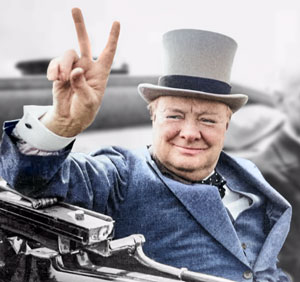Most of us are familiar with the phrase “regime change.” We find it mentioned frequently in the context of the United States governments involvement in the affairs of sovereign countries. Some individuals believe that the U.S. involvement in regime change or at least manipulation is not limited to affairs abroad, but also occurs on U.S. soil (elections). In support of such allegations, we only need to look at the government influenced media establishment which pushes false narratives to propel the agendas of certain groups and people. Or glance at the U.S. bureaucracy and its alphabet agencies which are easily weaponized against others. But this is not isolated to the activities of our national government. It occurs locally, with local government bodies influencing the leaders and affairs of other sovereign nations.
In a sixty-seven page complaint filed in the U.S. District Court – Western District of Louisiana in March of 2023, an elected official of a sovereign nation alleged he was targeted by the judicial system through various, illegal acts. Just some of the claims made against officials of the 16th Judicial District Attorney’s Office include: fabricating probable cause when none existed, fabricating evidence that was known to be false, intentionally coercing and intimidating witnesses into fabricating evidence, and ignoring and concealing exculpatory evidence (which would exonerate the accused). Specifically named in the complaint were District Attorney Bo Duhe and his former First Assistant Robert Vines. But the suit and story don’t begin here. In fact, the suit was originally filed in multiple venues in February of 2022, and facts giving rise the allegations date all the way back to 2015. It begins with the election of O’Neil J. Darden, Jr. to the Tribal Council Chairman of the Chitimacha Tribe of Louisiana.
Darden’s Dilema
By the time the summer of 2015 had rolled around O’Neil J. Darden, Jr. had worked for nearly twenty years in various capacities for Cypress Bayou Casino in Charenton, Louisiana. Cypress Bayou Casino is owned, operated, and located on the land of the Sovereign Nation of the Chitimacha. In June of 2015 Darden was elected as the Tribal Council Chairman. Tribal laws prohibit council members from concurrently working in the casino, thus his employment with the Casino ceased. However, due Darden having been employed with the Casino for several months prior to his election, he was eligible, along with approximately 600 other employees, to receive a bonus. At a tribal council meeting in November of 2015, the topic of bonuses was discussed, specifically whether Darden was eligible to receive a bonus. There was no opposition by Board members to the awarding of a pro-rated bonus to Darden based on the period of time he worked at the Casino prior to becoming the Tribal Council Chairman.
In December of 2015 bonuses were distributed to most of the hundreds of eligible employees, but there was an issue with Darden. Because he was no longer an employee of the Casino, the systems in place didn’t allow for his bonus to be processed like the others. It is akin to using a payroll system that doesn’t allow you to pay an ex-employee. So, in order to pay the approved bonus Darden had to be placed back into the system temporarily as an employee just long enough for the bonus to process and then be removed again.
Prior to this decision, the Casino’s executive staff contacted Tribal CFO Patty Perry to inquire if the Tribe could write a check to Darden with the Casino reimbursing funds to the Tribe. However, Perry instructed the staff that the check needed to come from the Casino since that’s where the funds were accrued. Perry admitted she sought an opinion from the Tribe’s external audit firm to find out if it was appropriate for the transaction to be handled this way. This decision by Perry is what led to the tribal gaming laws and the Louisiana State Police to have jurisdiction. Darden was also the direct supervisor of Perry at that time, but she never told him of this discussion or decision.
In the interim Darden decided that given his newly elected position as Chairman of the Tribal Council he would not accept the bonus and notified the appropriate persons. An updated list of bonuses was circulated on January 7, 2016 in which the bonus for Darden had been removed, however, the bonus has already been processed and was scheduled to be deposited into Darden’s account. No problem, right? He could just refund the money. And that is what was agreed to and what Darden did when he tendered a check on January 22, 2016, but it was too late.
A Trap?
On January 26, 2016, April Wyatt, a member of the Tribal Council, claimed that all bonuses paid in December of 2015 were paid without any written approval by the Tribal Council. In a matters of weeks warrants were issued for the arrest of Anthony Patrone and Montie Spivey for the charges of computer fraud (LARS 14:73.5), obstruction of justice (LARS 14:130.1) and felony Theft (LARS 14:67(B)(2)). A third warrant was also issued for Darden for the crime of felony theft. All three warrants improperly stated that Patrone and Spivey had illegally facilitated a payment of $5,736.66 into the personal checking account of Darden!
On February 18, 2016 members of the Tribal Council then acted to pass a resolution permitting them to assume the daily responsibilities a duties of Darden as Chairman. Later, in August of 2016 members of the Tribal Council set out to amend the Constitution and By-Laws of the Tribe to read “[if] any Tribal Council member is charged in a tribal, parish, state, or federal court with either a felony or crime of theft or fraud the Tribal Council member shall be suspended from Tribal Council duties, obligations, privileges , and compensation until resolution of any pending charges…” Then, in January of 2017 members of the Tribal Council significantly reduced Darden’s salary during his term as elected Chairman of the Tribal Council, despite a provision in the Louisiana Constitution which prohibits the reduction of an elected officials compensation during their term.
Meanwhile, following the arrest of Darden, the charges were presented to the U.S. Attorney for the Western District of Louisiana. After a review the U.S. Attorney declined to prosecute the matter. The Tribal Council then decided to take a second shot at prosecuting Darden by forwarding the case to the 16th Judicial District Attorney’s Office. Despite the fact that the alleged crime didn’t occur in Iberia Parish, it was there where the case was sent for prosecution or more specifically to Robert C. Vines.
Robert Vines
Robert Vines began his career with the 16th Judicial District Attorney’s Office in 1995 and retired in 2022. Vines was known to many as a hard-nose prosecutor in Iberia Parish and was generally liked by law enforcement officers for his aggressive nature. At the time of his retirement Vines served as the 1st Assistant District Attorney. But he was also paid as an independent contractor to be the Tribal Prosecutor, which remains the case today.
At a January 7, 2016, Tribal Council meeting, Darden swore Vines into office as the new Tribal Prosecutor while he also remained a full-time assistant district attorney. His Tribal Prosecutor duties were during the regular business hours of the 16th Judicial District Attorney’s office. His boss, 16th Judicial District Attorney Bo Duhe, knew and apparently approved of Vines’ Tribal Prosecutor job, despite a Louisiana Attorney General Opinion (03-0382 – February 3, 2004) saying this is illegal and constitutes public payroll fraud (a state employee may not perform work for a private organization during ordinary business hours; receipt of wages for any such period constitutes public payroll fraud). In fact, according to Darden, Duhe was heavily involved in Vines getting the Tribal Prosecutor job. Specifically, after Darden was elected, Duhe contacted him during the Tribal Prosecutor interview process and asked him to lunch. He told Darden that Vines needed the job because he only made a limited six-figure salary, and he asked Darden to hire Vines as a personal favor.
Vines involvement in the Darden case is strange to say the least. Vines stomping grounds were Iberia Parish, not St. Mary Parish. Here you would generally expect to find Anthony Saleme leading the prosecution, or one of approximately a dozen other assistant district attorneys. Why Vines?
At the time Vines was earning $45,000 as the Tribal Prosecutor. However, he attempted to renegotiate a pay increase while he investigated and prosecuted Darden on behalf of the Chitimacha Tribe of Louisiana even though he was only sixteen (16) months into a thirty-six (36) month contract.
Conflicts of interest?
Despite the U.S. Attorney apparently finding no merit to the claims against Darden, Vines allegedly fabricated claims and conspired and acted in concert with members of the Tribal Council to pursue charges against Darden. The alleged victim, Chitimacha Tribe of Louisiana, had its very own hired hand available to investigate and prosecute the matter. Vines had already requested an ethics opinion regarding his participation in this matter as Tribal Prosecutor (not as an Assistant District Attorney) before the U.S. Attorney ever rendered a decision on whether to pursue charges against Darden. Then Vines agreed to accept the case and set out to conduct his own “independent” investigation of Darden.
The Louisiana Rules of Professional Conduct govern such conduct of attorneys licensed in the State of Louisiana. Rule 1.7(a) states:
Except as provided in paragraph (b), a lawyer shall not represent a client if the representation involves a concurrent conflict of interest. A concurrent conflict of interest exists if:
(1) the representation of one client will be directly adverse to another client; or
(2) there is a significant risk that the representation of one or more clients will be materially limited by the lawyer’s responsibilities to another client, a former client or a third person or by a personal interest of the lawyer.
Additionally, Rule 1.11(d) states:
Except as law may otherwise expressly permit, a lawyer currently serving as a public officer or employee:
(1) is subject to Rules 1.7 and 1.9; and (2) shall not:
(i) participate in a matter in which the lawyer participated personally and substantially while in private practice or nongovernmental employment, unless the appropriate government agency gives its informed consent, confirmed in writing; or
(ii) negotiate for private employment with any person who is involved as a party or as lawyer for a party in a matter in which the lawyer is participating personally and substantially, except that a lawyer serving as a law clerk to a judge, other adjudicative officer or arbitrator may negotiate for private employment as permitted by Rule 1.12(b) and subject to the conditions stated in Rule 1.12(b).
A complaint was filed with the Office of Disciplinary Counsel by Darden on June 20, 2021, however, there doesn’t appear to have been any meaningful action taken with regards to the alleged misconduct by Vines.
The investigation and prosecution [persecution]
As early as August of 2016 Vines embarked upon conducting his own investigation. Apparently, the one conducted by the Louisiana State Police which led to the issuance of three arrest warrants was flawed or too weak to bring to trial. But instead of allowing the Louisiana State Police or another agency to do their jobs, Vines decided to take the matter up personally. Vines solicited affidavits and conducted interviews of co-defendants. The affidavit of Anthony Patrone, a co-defendant and an individual with thirty-five years of casino industry experience indicated it was a common practice to “activate a previously terminated employee” for the purposes of providing additional compensation which is due. This exculpatory information was never provided to Darden. Vines also told Patrone that he never took any of the criminal charges seriously and that “the troopers didn’t understand what happened.” Vines also allegedly fabricated testimony and coached the other members of the Tribal Council to adopt the false narrative.
On September 21, 2016 Vines notified the attorney for Darden that his client was the “target” of a Grand Jury hearing scheduled for October 5th and 6th. However, instead of putting the matter before the Grandy Jury to review and determine if sufficient evidence existed to indict Darden, Vines made the decision to charge Darden by filing a Bill of Information. At his arraignment on October 7, 2016, Vines advised Darden that he would drop all of the charges against him if he were to resign his position as Chairman. Darden declined. The matter would then be dragged out for five years with Vines requesting at least thirteen continuances. Spivey’s case was also dragged out by Vines for over four years, with no prosecution ever initiated. Eventually, the statute of limitation expired and Vines had no choice but to dismiss Spivey’s case.
On the day of trial, Vines orally modified the bill of information to a single count of misdemeanor theft. After a two-day trial that ended on February 9, 2021 Darden walked out of court finally exonerated of all charges. Charges that appear to have been trumped out by a local prosecutor to aid and abet a coup in their efforts to overthrow the elected Chairman. And Duhe, appears to have known about it all along.
In 2018, while Darden was awaiting trial, Patrone applied for a casino license in New Jersey. The New Jersey Casino Control Commission wrote a 47-page decision detailing that the evidence reveals Darden’s bonus was not illegal to pay or accept, and “how anyone could find this to be anything but transparent is puzzling.” Notably, the decision discusses that Duhe wrote a letter about how his office conducted the investigation. So why did Duhe allow Vines to continue with the prosecution?
Why is this level of abuse tolerated?
Robert H. Jackson, former U.S. Attorney General once stated: “The prosecutor has more control over life, liberty, and reputation than any other person in America.” Vines is no longer employed by the 16th Judicial District Attorney’s Office. He is probably enjoying a very healthy government retirement. Darden on the other hand, or any person who suffers through such an ordeal, can never be made whole by monetary compensation. For such a person faith in the entire system is lost. Every word of the Constitution written to protect us from such egregious acts at the hands of the government is reduced to nothing more than letters on parchment, without meaning or protection.
If we can’t rely on the Constitution we certainly can’t depend on the special ethical rules for prosecutors, such as Rule 3.8 which reads:
The prosecutor in a criminal case shall:
(a) refrain from prosecuting a charge that the prosecutor knows is not supported by probable cause;
(b) make reasonable efforts to assure that the accused has been advised of the right to, and the procedure for obtaining, counsel and has been given reasonable opportunity to obtain counsel;
(d) make timely disclosure to the defense of all evidence or information known to the prosecutor that the prosecutor knows, or reasonably should know, either tends to negate the guilt of the accused or mitigates the offense, and, in connection with sentencing, disclose to the defense and to the tribunal all unprivileged mitigating information known to the prosecutor, except when the prosecutor is relieved of this responsibility by a protective order of the tribunal;
Or Rule 3.1, which states:
A lawyer shall not bring or defend a proceeding, or assert or controvert an issue therein, unless there is a basis in law and fact for doing so that is not frivolous, which includes a good faith argument for an extension, modification or reversal of existing law.
“To suffer an abuse of this power at the hands of an unethical prosecutor is one of the grossest inequities and indignities that can be visited upon a citizen by the State. Such abuse cannot be tolerated in a free society.” (State v. Sherman) But what recourse exists? The evidence demonstrates that even on the rare occasion where bar complaints are made against prosecutors, they are not effective deterrents, especially in Louisiana. The system employed by the Louisiana Supreme Court makes it extremely difficult to prove ethical complaints against abusive prosecutors. The courts also are an imperfect check on prosecutors with many judges unwilling to institute professional disciplinary proceedings or reluctant to challenge prosecutors.
Darden has sought relief for the violation of his constitutional rights and other violations by means of a civil suit. The District Attorney defendants in this matter have made every effort to have Darden’s civil case dismissed, but Darden continues to fight back. Apparently, they don’t want Darden to have the same opportunity to present his case knowing the outcome of their failed prosecution based upon distorted facts and the withholding of exculpatory evidence.
They have claimed they are entitled to Sovereign Immunity by virtue of Vines being a contract employee of the Sovereign Tribe of Chitimacha, despite the fact that all of his actions taken to investigate and prosecute Darden were done in his capacity as the First Assistant District Attorney. They have claimed they are entitled to State Sovereign Immunity under the Eleventh Amendment, ignoring the fact a District Attorney, much like a Sheriff or the head of a municipal corporation of the state, IS NOT a state government official for the purposes of the Eleventh Amendment. They have claimed they are entitled to Qualified Immunity as though the rights of Darden were not “clearly established” at the time of the misconduct. Lastly, they have claimed they are entitled to Absolute Prosecutorial Immunity (the ability to hide behind the veil of a prosecutor and do whatever they wish).
This kind of immunity was created to serve the “public trust” and to ensure the “proper functioning of the criminal justice system.” However, absolute prosecutorial immunity is not absolute. How often are we reminded that our first amendment and second amendment rights aren’t absolute? Why should the governments “rights” be absolute? If you go around fabricating evidence, using the power and force of your office to persecute people who clearly did not commit criminal offenses, use strong-arm tactics to try and force someone to resign their elected post – all while trying to leverage a pay raise for yourself, you ARE NOT entitled to immunity. You are a thug clothed and hiding behind the very fabric of what is sacrosanct in America! If it can happen to Darden, it can happen to any one of us!
###










